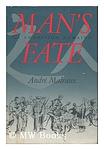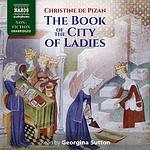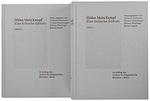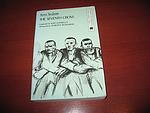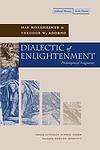The Greatest French, German "Political" Books of All Time
Click to learn how this list is calculated.
This list represents a comprehensive and trusted collection of the greatest books. Developed through a specialized algorithm, it brings together 305 'best of' book lists to form a definitive guide to the world's most acclaimed books. For those interested in how these books are chosen, additional details can be found on the rankings page.
Genres
The "Political" category of books encompasses works that explore the theory, practice, and history of government and politics. These books may cover topics such as political ideologies, political systems, political institutions, political movements, and political leaders. They may also examine the relationship between politics and other areas of society, such as economics, culture, and international relations. Political books can be both informative and thought-provoking, offering readers insights into the complexities of the political world and the challenges of governing in a democratic society.
Countries
Date Range
Reading Statistics
Click the button below to see how many of these books you've read!
Download
If you're interested in downloading this list as a CSV file for use in a spreadsheet application, you can easily do so by clicking the button below. Please note that to ensure a manageable file size and faster download, the CSV will include details for only the first 500 books.
Download-
1. The Tin Drum by Günter Grass
The novel tells the story of Oskar Matzerath, a boy who decides on his third birthday that he will stop growing and remain a three-year-old forever. Oskar is gifted with a tin drum by his mother, which he uses to express his emotions and thoughts. Living in Danzig during the rise of Nazi Germany, Oskar's refusal to grow is a form of protest against the adult world. The book is a blend of magical realism and historical fiction, providing a unique perspective on the horrors of World War II and the post-war era in Germany.
The 93rd Greatest Book of All Time -
2. The Second Sex by Simone de Beauvoir
This influential work explores the treatment and perception of women throughout history, arguing that women have been repressed and defined only in relation to men. The author presents a detailed analysis of women's roles in society, family, work, and in the creation of their own identities. She discusses the concept of 'the other' and how this has been used to suppress women, while also examining the biological, psychological, and societal impacts of this oppression. The book is a seminal text in feminist theory, challenging traditional notions of femininity and calling for equality and freedom for women.
The 130th Greatest Book of All Time -
3. Communist Manifesto by Karl Marx, Friedrich Engels
This influential political pamphlet advocates for the abolition of private property, the rights of the proletariat, and the eventual establishment of a classless society. The authors argue that all of history is a record of class struggle, culminating in the conflict between the bourgeoisie, who control the means of production, and the proletariat, who provide the labor. They predict that this struggle will result in a revolution, leading to a society where property and wealth are communally controlled.
The 196th Greatest Book of All Time -
4. Democracy in America by Alexis de Tocqueville
This influential book offers an in-depth analysis of the strengths and weaknesses of 19th century American democracy. The author, a French political thinker, provides a detailed examination of the democratic process and its impact on society, politics, and the economy. The work highlights the importance of civil society, local institutions, and the spirit of equality in ensuring the stability of democracy. It also delves into the dangers of majority tyranny, the potential for democratic despotism, and the critical role of religion and morality in sustaining a democratic nation.
The 239th Greatest Book of All Time -
5. Man's Fate by Andre Malraux
Set in 1920s Shanghai during a time of political upheaval, the novel explores the existential themes of life, death, and the human condition through the experiences of a group of revolutionaries. The narrative follows their struggles and sacrifices for their cause, the Communist revolution, and their inevitable confrontation with their own mortality and the harsh realities of life. The book delves into the complexities of political ideologies, human relationships and the constant struggle between hope and despair.
The 247th Greatest Book of All Time -
6. Das Kapital by Karl Marx
This influential work is a comprehensive critique of political economy, exploring the complex nature of capitalism, its production processes, and its societal impact. The book delves into the intricacies of commodities, labor theory of value, surplus value, and exploitation, arguing that capitalism is inherently unstable and prone to periodic crises. It also posits that the capitalist system ultimately leads to the concentration of wealth in fewer hands, causing social inequality and paving the way for its own demise. The book is widely regarded as a foundational text in the development of socialist and communist ideologies.
The 405th Greatest Book of All Time -
7. The Social Contract by Jean-Jacques Rousseau
"The Social Contract" is a philosophical work that discusses the concepts of sovereignty and the social contract. The author argues that all men are born free, but everywhere they are in chains, suggesting that society and its rules are a form of enslavement. However, he also posits that a social contract, where individuals come together to form a collective or a society, is necessary for the preservation of their freedom. This contract allows for the creation of a sovereign that is made up of the collective and expresses the general will, which is always right and tends towards the public utility.
The 533rd Greatest Book of All Time -
8. The Mandarins by Simone de Beauvoir
"The Mandarins" is a novel that explores the personal and political lives of a group of intellectuals in post-World War II France. The narrative delves into their struggles with ethical dilemmas, political ideologies, and personal relationships in a rapidly changing world. The book is known for its exploration of existentialism and feminism, providing a vivid portrayal of the human condition and the complexities of freedom.
The 542nd Greatest Book of All Time -
9. The Origins of Totalitarianism by Hannah Arendt
The book explores the roots of totalitarian systems, particularly focusing on Nazi Germany and Stalinist Russia. It delves into the historical, social, and political circumstances that led to the rise of these oppressive regimes, including anti-Semitism, imperialism, and the decline of the nation-state. The author further discusses the nature of power, the role of propaganda, and the manipulation of the masses in these systems, providing a comprehensive analysis of totalitarianism.
The 578th Greatest Book of All Time -
10. The Book of the City of Ladies by Christine De Pizan
"The Book of the City of Ladies" is a classical work in which the author, through allegorical characters, builds an imaginary city for women to illustrate their significant contributions to society. The book is a defense of women, arguing against the popular notion of the time that women were inferior to men. It showcases the author's deep knowledge of the past, referencing numerous notable women from history and mythology, emphasizing their virtues, intelligence, and moral fiber.
The 700th Greatest Book of All Time -
11. The Case of Comrade Tulayev by Victor Serge
"The Case of Comrade Tulayev" is a political novel set in the Stalinist era of the Soviet Union. The story begins with the murder of a high-ranking Soviet official, Comrade Tulayev, which sets off a series of events leading to the arrest and execution of innocent people. It provides an in-depth exploration of the paranoia, fear, and injustice that characterized Stalin's regime, showing the human cost of political purges and the absurdity of the bureaucratic system.
The 826th Greatest Book of All Time -
12. Economy and Society by Max Weber
"Economy and Society" is a comprehensive analysis of the relationship between economy and society, focusing on the role of social actions and their impact on economic systems. The book presents a theoretical framework for understanding how economic and social structures influence each other, including the role of bureaucracy, power, and authority. The author also introduces his famous concept of the "Protestant Ethic", linking the rise of capitalism to certain aspects of Christian beliefs. The book is considered a fundamental text in sociology and economics, providing a deep understanding of social and economic phenomena.
The 961st Greatest Book of All Time -
13. Eichmann in Jerusalem: A Report on the Banality of Evil by Hannah Arendt
This book is a thought-provoking exploration of the trial of Adolf Eichmann, a major organizer of the Holocaust. The author argues that Eichmann was not a fanatical ideologue, but rather an ordinary individual who simply followed orders and bureaucratic procedures, highlighting the terrifying potential for evil in any system that values obedience over personal responsibility. The concept of the "banality of evil" is introduced, suggesting that horrific acts can be committed by ordinary people under certain conditions.
The 977th Greatest Book of All Time -
14. Mein Kampf by Adolf Hitler
This book is a two-volume work written by a prominent dictator during his imprisonment in 1924. It outlines his political ideology and future plans for Germany, combining elements of autobiography with an exposition of his views on race, nationality, and governance. The author's main thesis is that the German-speaking 'Aryan' race is superior to all others, and that it is the duty of the state to preserve the purity of this race through policies of racial segregation, expansionism, and extermination. The book also contains detailed discussions on the author's hatred towards Jews, Marxism, and the parliamentary system.
The 1046th Greatest Book of All Time -
15. Discipline and Punish by Michel Foucault
This book delves into the historical evolution of the penal system, examining how Western societies have transitioned from a regime of violent, public physical punishment to a more subtle form of surveillance and control. It introduces the concept of the "panopticon," a metaphor for modern disciplinary societies that exercise power through observation and normalization rather than through overt physical coercion. The work explores the relationship between power, knowledge, and social control, arguing that disciplinary mechanisms are embedded in various institutions, such as schools, hospitals, and prisons, shaping individuals and maintaining order in society.
The 1064th Greatest Book of All Time -
16. The Lost Honour of Katharina Blum by Heinrich Böll
"The Lost Honour of Katharina Blum" is a story about a young woman who becomes the target of a media smear campaign after she falls in love with a man who is suspected of being a political radical. The media's relentless invasion of her privacy and the negative portrayal of her character lead to tragic consequences, highlighting the destructive power of sensationalist journalism. The novel is also a critique of the political climate in Germany during the 1970s.
The 1117th Greatest Book of All Time -
17. The Protestant Ethic and the Spirit of Capitalism by Max Weber
This book is a sociological study that explores the relationship between the ethics of ascetic Protestantism and the emergence of the spirit of modern capitalism. The author argues that the religious ideas of groups such as the Calvinists played a role in creating the capitalistic spirit. The work is noted for its rigorous methodology and its contribution to the broader understanding of the origins and development of capitalism. It has been widely influential across social sciences, especially in sociology and economics.
The 1145th Greatest Book of All Time -
18. Émile by Jean-Jacques Rousseau
The book in question is a seminal work in the field of education and philosophy, presenting a comprehensive treatise on the nature of man and the importance of education tailored to the individual's developmental stages. The author argues for a system of education that allows for the natural development of a child's abilities and senses, advocating for learning through experience rather than traditional academic instruction. The narrative follows the growth of a fictional boy, illustrating the author's educational philosophy through his upbringing, which emphasizes moral and emotional development alongside intellectual growth. The work challenges conventional notions of education and has had a profound impact on modern educational theory.
The 1359th Greatest Book of All Time -
19. The Rebel by Albert Camus
"The Rebel" is a philosophical exploration of rebellion and revolution. It dissects the nature and origins of rebellion, arguing that it arises from a basic human refusal to accept injustice. The book delves into the many forms rebellion can take, from personal revolt to political revolution, and examines the consequences and ethics of each. The author also critically evaluates the rebellious attitudes of various historical figures and movements, highlighting the potential for rebellion to either affirm or destroy human dignity.
The 1411th Greatest Book of All Time -
20. Decline of the West by Oswald Spengler
"Decline of the West" is a comprehensive historical and philosophical work that explores the rise and fall of civilizations. The author argues that every civilization has a life cycle, from birth to maturity and finally to decline. He suggests Western civilization is in its final stage of decline, comparing it to the end phases of the Greco-Roman civilization. The book also introduces the concept of 'pseudomorphosis', where a civilization is so deeply influenced by a previous culture that it suppresses its own authentic culture.
The 1643rd Greatest Book of All Time -
21. Mother Courage and Her Children by Bertolt Brecht
Set against the backdrop of the Thirty Years' War, the book tells the story of a canteen woman, Mother Courage, who pulls her cart with her three children across war-torn Europe. It explores her struggles and survival tactics as she tries to profit from the war while keeping her children safe. The narrative is a profound critique of war and its consequences, highlighting the human cost of conflict and the often futile search for prosperity and security in a chaotic world.
The 1721st Greatest Book of All Time -
22. The Resistible Rise of Arturo Ui by Bertolt Brecht
"The Resistible Rise of Arturo Ui" is a satirical play that uses the rise of a fictional 1930s Chicago mobster, Arturo Ui, to parallel the rise of Adolf Hitler in Nazi Germany. The narrative is a critique of those who allowed Hitler to come to power, emphasizing that his rise was indeed resistible. The play explores themes of power, corruption, manipulation, and the dangers of complacency, showcasing the destructive potential of unchecked ambition and the failure of society to prevent the ascent of dangerous individuals.
The 1725th Greatest Book of All Time -
23. The Seventh Cross by Anna Seghers
"The Seventh Cross" is a gripping tale set in Nazi Germany that revolves around seven men who escape from a concentration camp. The camp commandant erects seven crosses, vowing to hang each escapee on their return. The story primarily follows one escapee, who manages to evade capture and make his way back to his hometown. The narrative explores the psychological terror imposed by the Nazi regime, the resilience of human spirit, and the subtle forms of resistance within the German populace.
The 1737th Greatest Book of All Time -
24. The Fear Of Freedom by Erich Fromm
The book explores the psychological and societal mechanisms that lead individuals to relinquish their autonomy and seek security in authoritarian systems, despite the inherent dangers of such a surrender. It delves into the historical context of the 20th century, particularly the rise of fascism and totalitarianism, to understand the paradoxical inclination of people to escape freedom's responsibilities. The author argues that true freedom requires not only the absence of external constraints but also the presence of inner psychological conditions that enable self-reliance, critical thinking, and the ability to love and connect with others. The work challenges readers to confront the difficult task of achieving positive freedom through self-awareness and the development of one's human potential.
The 1914th Greatest Book of All Time -
25. Dialectic Of Enlightenment by Max Horkheimer, Theodor Adorno
"Dialectic of Enlightenment" is a seminal philosophical work that explores the nature of enlightenment and its paradoxical relationship with the concept of reason. The authors argue that the Enlightenment's quest for knowledge, freedom, and autonomy has inadvertently led to the opposite: a form of domination and control through instrumental reason. They examine how the Enlightenment's rationality, once aimed at liberating individuals from myth and superstition, has devolved into a tool of oppression, giving rise to totalitarian systems and a culture industry that manipulates mass society. The book delves into various cultural artifacts, including literature, film, and popular culture, to illustrate how enlightenment has become self-destructive, ultimately questioning the possibility of true emancipation in a society governed by the very rationality that was supposed to set it free.
The 2018th Greatest Book of All Time
Reading Statistics
Click the button below to see how many of these books you've read!
Download
If you're interested in downloading this list as a CSV file for use in a spreadsheet application, you can easily do so by clicking the button below. Please note that to ensure a manageable file size and faster download, the CSV will include details for only the first 500 books.
Download



